My days in the Dutch Army (1963 - 65)
Hunt : 1 - 2 - 3 - 4 - Stories - Reference map of the Netherlands
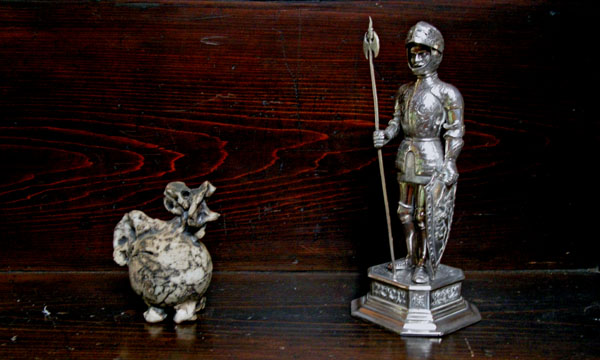 My Army days 1
My Army days 1
Those cognac glasses I talked about yesterday started me thinking about my army days.
After the war (WW2) until somewhere in the 70s there was compulsory army
training in Holland. Every young and able male had to do their service of 18
(soldiers) to 21 months (officers). You were usually called up around
your 18th birthday, but Uni students could apply for permission to complete
their studies first. So I went into the army at age 26. I did not like it at
the time I went in, but in hindsight it has been a very constructive and
indeed enjoyable time in my life.
Reserve officers in Holland were
selected purely on merit.
Joining after your studies had of course an age advantage, being more
mature than the bulk of 18-20 year olds. But there were quite a number of my
friends from Uni who never made it into or through the Officers school.
The selection process was extensive and very thorough. It started already
while still at Uni when at one point you were requested to attend a weekend
selection camp. Quite a few of my friends had done this before me already,
so I was well briefed on how to act and succeed when it was my turn. It was
in fact interesting and rather fun.
I entered the Field Artillery basic training camp
in Ossendrecht (50km SW from Breda close to the Belgian border) in November 1963 with 1500
fellow recruits. I was accommodated in one of the barracks with 199 others in
ten rooms, 20 recruits to a room. On the very first evening all 200 of us stood
shivering in our sport shorts and T shirts closely pressed together in the
entrance hall were our commanding officer, a Captain, addressed us. He
welcomed us into the army and urged us to do our best because "right here and within the next six weeks your future in the
army will be determined" he said, then added "and only 6 of you, at best will make it to the Officers
school." I still remember how very small and vulnerable I felt at
that moment.
For me the testing started right there and then, as I was immediately put in
charge of Room 10, at the very end of the barrack, and responsible for each
of the 20 recruits in it. I immediately started to get to know every one
and to put them at ease. Some were still very young and innocent. A farm
boy of barely 18 (Krikken) in the bunk below me had never left the
family farm and always worn wooden clogs. So for the first week I tied his
boot laces every morning until he could do it himself. "What is this for ?"
he asked, holding up a hankie. I explained it to him.
Within a
week we worked and acted as a well synchronised unit, snapping to attention
on my command, marching crisp and sharp, putting every other room in the
building to shame. A young wachtmeester (Dutch title for a Sergeant in the
Artillery) was the instructor for our room. He was tough, matter of fact,
but very effective and I liked him. Without letting on I think he was
pleased with our progress, but discharged me from my "command" after just
two weeks, the first one of the 10 rooms. Was this a good or a bad sign I
wondered.
During those first six weeks we went through the usual basic training
routines, marching, running, night patrols, riffle routines. Skill testing
also continued and I had an interview with the army psychologist Major
Waterman.
On the morning of January 10, at 6am when we were all packed
up and ready for a 10 km hike through the snow, the loudspeaker suddenly
called out my name. I had to report immediately to the command post at the
front gate. When I arrived there, quite out of breath, I was informed my wife was in
labour and given a pass for 3 days of compassionate leave. I rushed back to
the barrack, threw my gear into its locker, wished my envious mates a "long
and pleasant hike" and was on my way. After a two and a half hour journey in
bus and trains my father was waiting for me at the Zutphen Railway
Station. "Welcome son", he said "You have become a father.". Babette had
entered this world.
Three days later I was back in camp. That evening I shouted several cases
of beer in the mess to all 20 of my room mates. We had a hell of a party.
Later back at the barrack the toilet was a real mess as several of the guys
had vomited all over it. Two or three of us cleaned it all up before our
wachtmeester, always on the prowl at night, got a sniff of it.
A few
weeks later I climbed with my kit into the back of a truck to Breda.
I had been selected as one of the six from our barrack to be admitted to the
SROA, the School for Reserve Officers of the Artillery. A total of 52
of the 1500 recruits would arrive there that day. Only 36 of us would, 6
months later, successfully complete the course.
Up - Top - Down
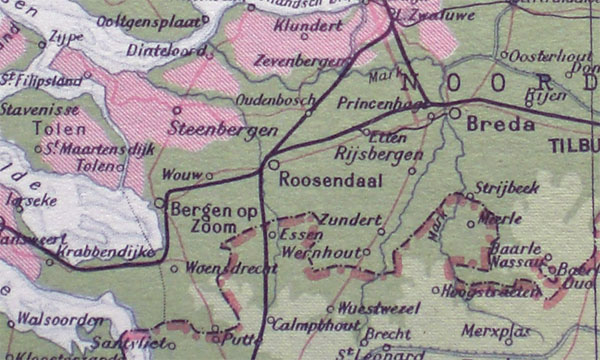 My Army days 2
My Army days 2
We arrive at the School
for Reserve Officers in the Artillery (SROA) in Breda late in the morning (January '64),
and after having our gear properly stored away in our lockers in the
sleeping quarters we go straight in for lunch. Conditions at the school are
quite different from those at the base camp. Beds instead of 2 story bunks,
central heating and white table cloths, proper plates, cups and saucers,
glasses in the dining room, where servants in spotlessly white jackets serve
up our meals.
The Head of the School, a tall robust Lieutenant
Colonel, joins us for lunch. After a few words of welcome he briefly states
the two simple but important rules which must not be broken in the school.
The first one needs no explanation : Being on time
always means 5 minutes early !.
"The fundamental and
absolutely essential function of an officer in the army," he continues "is
to make decisions. And you will start doing that right here and now.
Every time you make a good decision we will be very happy, and every time
you make a bad decision we will be very unhappy, but we will forgive you!
But fail to make a decision at all and you will
be dismissed from this school instantly !"
This is without a doubt the single most important
lesson I have ever learned, because it applies not just to the army,
but to the way you conduct your entire life. Making a decision in life is
not an isolated black and white proposition. Decision making is a skill
which needs to be learned through practice. It is very much a percentage
game, the more used you become to making decisions the higher the
percentage rises of the successful outcomes.
There is an enormous amount to learn at the SROA, all
cramped into just 6 months. At the end of every 2 months there is a
full week of tests and examinations, both in writing and practical. If you
fail your are dismissed from the school and return to the regular army
as a Private. If you pass you progress to the next 2 months training.
Each time you pass you are also promoted in rank. First from Private to
Corporal, then to Wachtmeester (Artillery equivalent to Sergeant), finally
after successfully completing the whole course to Cornet (accepted as
officer but not yet commissioned).
There are different teaching streams for the various specialist
officer positions : truck and car repairs, communications, surveyors,
observers (based with the Infantry at the front line directing the artillery
fire) and battery officers (BTOs), in charge of an entire Field Artillery
Battery.
I go through the BTO stream. A Battery consists of six 105mm
Howitzers, about 25 cars and trucks and 80 to 100 officers, noncoms and
privates. As BTO you have to supervise every single aspect of the battery.
Including for example : maintenance of rifles, guns, radios, cars. You have
to develop skills in radio communication, surveying. You also need to be
able to train the soldiers under your command on every aspect of their
duties.
Probably the most important skill I learn is the gun fire control
calculation. You have to compute the gun inclination and direction in order
to correctly aim at and hit the target. This is a complicated procedure involving the weather
conditions at various successive air levels the projectile is to travel
through, temperature of the explosives, calibration for each gun, etc.etc.
I very much enjoy doing these. The calculated base values are marked on a
slide ruler, which can then used to read the required gun barrel
inclinations for specific targets.
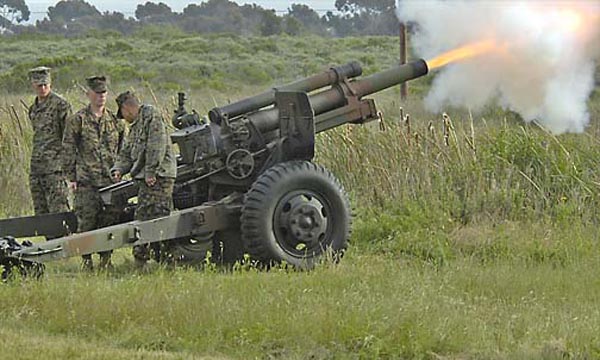 At the time I went through the School we are just changing over from 25
Pounders to 105mm Howitzers. The 25 Pounder is a lovely gun. It
is small and compact and can rotate easily around on its circular base.
Calculations are done using the old 360 degrees of the compass.
At the time I went through the School we are just changing over from 25
Pounders to 105mm Howitzers. The 25 Pounder is a lovely gun. It
is small and compact and can rotate easily around on its circular base.
Calculations are done using the old 360 degrees of the compass.
The 105
Howitzer has two legs which have to be spread and dug in when placed in
position, and can therefore not shift around as easily and quickly as the
25 Pounder. It has however a much larger inclination range (able to point steeply upwards, essential in
mountainous terrain) and is calibrated to the new 4000
thousands compass division. This makes calculations much easier, as it
converts 90 degrees of the old system into the equivalent of 1000
thousands.
The Captain in charge of our progress is a blond square
headed man with glasses in his mid 30s. He is much feared as out of the
previous group he guided through the School less than half managed to
graduate at the end. We are all therefore much on our metal. He also marries during our term (as one of the elected Class representatives I attend his wedding) which no doubt helps to mellow his attitude in life. This
all helps as 36 from the 52 who initially started in our group successfully graduate as Cornets.
I become somewhat personally involved with the Lieutenant
Colonel Head of the School. He discovered at one point that we have an important thing in
common. Both he and I have married wives with incompatible blood groups, one
being Rhesus factor positive the other negative. This can cause
problems when our children are born. His wife has given birth to three
children. Two of them survived without a problem, but the third one is
stillborn. He warns me about this.
Our eldest daughter Babette
is fine. But I am reminded of his words six years later when our son
Jeroen is born in Kalgoorlie (Western Australia). He
receives several blood transfusions immediately after his birth, and also spends the first 6
months of his life in a most ingenious frame to properly realign his hips.
After that, thanks goodness, he is fine.
During the farewell party after our successful completion
of the course I share a drink with the boss, and in my youthful enthusiasm
try to give him some advice on one of the last training exercises we have
just gone through. "Who the hell do you think is in charge of this
School!" he bellows at me, "You or me??".
But it is a good
natured rebuke, almost like a father to his son. For he surely must smile
inwardly, as he realises one thing for sure : I have got a firm hold on that
second School rule of his and will adhere to it for the rest of my life.
PS
Computers have replaced the humble Artillery slide ruler long ago, and the
SROA too has closed its doors after National service was abandoned in the
Netherlands. To me that makes these memories of days gone bye even more dear
and valuable.
Up - Top - Down
My Army days 3
We stay in Assen for the remaining 14 months period of my National
service until late August 1965. Life with the regular troops is far less
hectic than my previous 8 months of
concentrated training.
Most of the time is taken up with maintenance of
equipment, short trips out in the field and training of the personnel. At
intervals the routine is livened up by longer exercises, camping in the
field for 3, 4 days or a week, either at the shooting grounds at
Oldenbroek near the village of Ermelo (Veluwe, Gelderland) or
at Münsterlage on the Lüneburger Heide (North of
Celle, Germany) and close to the Iron Curtain.
Immediately on arrival
from the SROA I am attached to the staff, rather
than being a battery officer (for which I was trained). This suits me fine, as I am not really a
marching and drilling new recruits type of person.
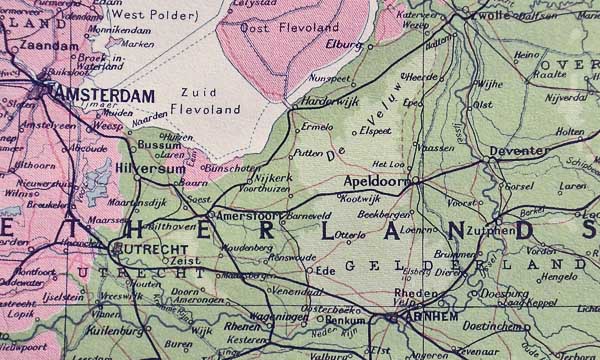
Initially I am attached to the S3, the
Commander of Operations, and work in the Afdeling Command Post with the fire
calculations team, providing targets for all three gun batteries in the
Afdeling.
I am also involved in the retraining of professional officers from
the recently abandoned Dutch Anti Aircraft Artillery units ("Lucht
Artillery"), which have been transferred to us, the Field Artillery. It is
quite fun, after being bossed around for 6 months by wachtmeesters (= Artillery sergeants) at the
Artillery School, to now be on the other side of the equation, supervising
Captains and Majors who are sweating it out over shooting procedures.
In due course I am transferred to the Intelligence section and after
a brief period become the S2 in charge of Security and Intelligence
for the Afdeling. In peace time this is a lot less exiting than it sounds.
Apart from compiling data from various sources during field exercises for
defining appropriate shooting targets for the batteries, it is a rather
administrative job. Looking after politically "suspect" soldiers who have in the past
read a Communist pamphlet or two, and are now barred from promotion, unless
screened by me and approved by Headquarters in Den Haag. Generally this can
be done and I am successful in several cases. I am also in charge of
all maps used by the Afdeling. These are thousands of NATO classified maps
(held in several boxes under lock and key) in case of war, but also the
regular stock used during exercises in the field. The Dutch Army has a firm
policy : maps are never ever lost!. But as it are really great maps
it is no surprise that they do get "lost" amongst various interested
personnel.
The standard solution is simple. Whenever an Army map is reported
"lost" I take another map of my stock, rip it in half, present both pieces to
the map supply center in Ede and immediately receive two brand new maps in exchange. Works every
time ! For it is of course unavoidable that maps become damaged or worn during
use.
Up - Top - Down
My Army days 4 (Final)
Besides my official functions in the Army I also have an important social
one. Soon after arriving in Assen I am appointed Mess President in the
Field, in charge of the Officers field mess whenever we are on exercises
within our Country. During exercises on foreign soil (mainly Germany) a
professional officer (instead of a reserve like me) is mandatory for that
function.
This job is quite fun. I am in charge of a three ton truck, a
driver and two mess servants. The truck contains a large mess tent, folding
tables, chairs, table cloths, plates, cutlery, glasses and a suitable
quantity of alcohol, soft drinks and nibble foods. The two mess servants and
I jointly purchase the consumables from an Army base mess, then sell them
with a small markup on to the officers. All consumptions go on individual
slates, which I later present and collect from each once we are back in
Assen. We always manage to break even and usually make a small profit which
we share amongst the three of us.
Dur
ing the day I fulfill my normal
operational responsibilities while the two mess servants guard our
"investments". I usually manage to get back early, often to go out again and
purchase fresh supplies. At night I stay in the mess until the last
customer leaves, which on occasion can be at 5am. Most nights I sleep on a
table in the mess tent, right on top of our precious supplies, for the
saying goes that "The Cavalry may be the Queen of the
battle, but the Artillery is the King of the bottle !"
We regularly go on exercises in Germany, sometimes on our own, sometimes in
combination with other NATO country Army units. The Artillery exercise area,
called Münsterlage, is located in the Southern half of the Lüneburger Heide, North
of Celle. Celle has a Duty Free US Army store which we are
allowed to use, and always do to load up on cheap perfumes, alcohol, etc. to
take with us back home.
The Artillery area itself has a shooting target
pit in its center with plenty of ground surrounding it for shifting battery
positions around and for base camp areas. On its Eastern side the area
extends right up to the Iron Curtain, a 150 meters wide zone that
cuts through the forest. All trees and bushes are cleared, like an super
wide Australian fire break, and a high barbed wire fence on either side
prevents anyone from entering the bare stripped zone which is densely
mined.
On one of our last trips to this area we set up our base
camp right alongside the Iron Curtain. One day we conduct a 36 hours non
stop exercise through continued rain. We are all wet and miserably cold
when we get back to camp. I change clothes and enter the Officers Mess tent.
My friend Potter is there and we start drinking together, Pimms
Nr.1 with something added to make it "a bit more potent".
Potter, a Reserve Officer like me, is in charge of maintenance of the Afdeling's entire
car fleet, a massive collection of over 100 trucks, jeeps, etc. He really
has his work cut out and is doing a terrific job, as is recognised by all.
Tonight, as the Pimms cocktails start to take effect, Potter and I are not just
friends, no we have become brothers, and we should have more brothers we
both agree. There must be more potential brothers around, here but also those
poor buggers on the other side of the fence! I am not sure what our
motivation was, to fight or to befriend them, but at around 2am we leave the
Mess tent and stumble arm in arm towards that high Iron Curtain fence and start to climb
it.
We must be making plenty of noise, for it wakes up my Guardian
Angel, the Opper Wachtmeester (= Artillery Sergeant Major) of the S3
staff. I always looked after him, and he after me. These are the vital
protective connections one builds up in institutions like the Army. The
"Opper" gets out of his tent and sees us hanging there, halfway up,
entangled in the barbed wire. He plucks us off the bloody fence like a pair
of over ripe cherries and puts us to bed. The next morning, bleary eyed, I
thank him. He just smiles, says not a word.
 Finally I reach
the end of my service. A few weeks before all Reserve Officers from our SROA
class that have survived, meet up together for our Commissioning
ceremony. We have a choice of either swearing or promising allegiance to
our Dutch Queen. I make my promise. Finally I reach
the end of my service. A few weeks before all Reserve Officers from our SROA
class that have survived, meet up together for our Commissioning
ceremony. We have a choice of either swearing or promising allegiance to
our Dutch Queen. I make my promise.
Afterwards there is a reception in the Historic Artillery Officers
Mess on our shooting grounds Oldenbroek (near Ermelo).
Amongst the many
familiar young faces around me, an older Officer I recognise approaches me.
It is Major Waterman who interviewed me
21 months ago as a recruit in Ossendrecht. "Congratulations Lieutenant Furstner, you made it" he
says while we shake hands. "You know, it is quite
remarkable," he continues, since we last met
almost 2 years ago, I have interviewed about 3000 recruits like you. I have
forgotten all of them. But you, I will always remember!". We share a
drink on that. How vain we are. Because of his kind and so very
flattering words, I will never forget him either.
PS
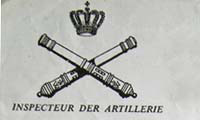 After just under 3 years, when I was in Australia, I was automatically promoted to First Lieutenant in the Artillery. I found amongst my papers the Official Notification of that fact. Those Reserve Officers that resided in the Netherlands were in due course called up for a 6 week refresher course, after which they were promoted to Captain. Unfortunately I remained overseas and was therefore unable to attain that rank.
After just under 3 years, when I was in Australia, I was automatically promoted to First Lieutenant in the Artillery. I found amongst my papers the Official Notification of that fact. Those Reserve Officers that resided in the Netherlands were in due course called up for a 6 week refresher course, after which they were promoted to Captain. Unfortunately I remained overseas and was therefore unable to attain that rank.
Top of Page
© 2010-2011 Michael Furstner
|




